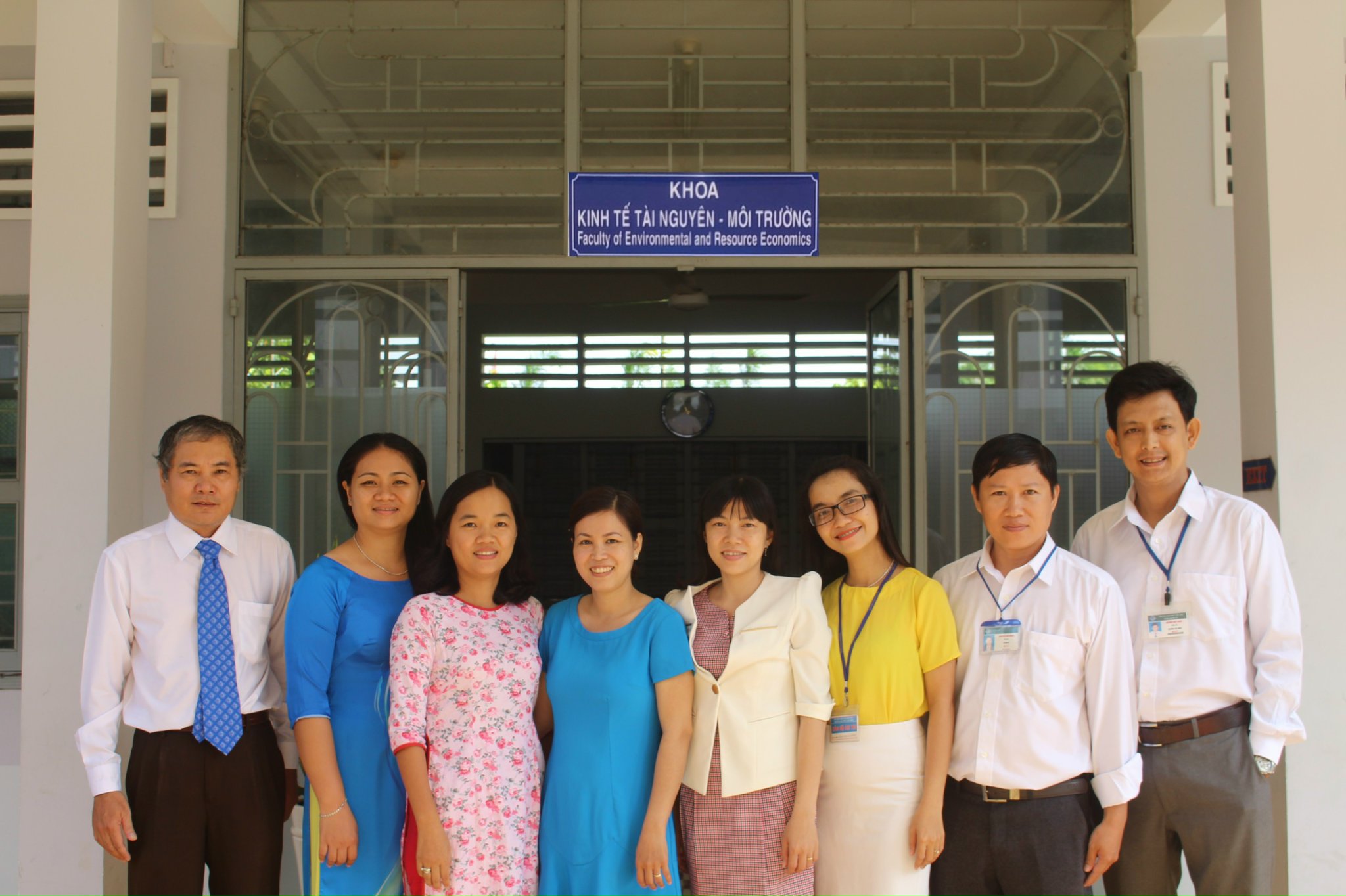FACULTY OF ENVIRONMENTAL AND RESOURCE ECONOMICS
(FERE)

1. INTRODUCTION
The Faculty of Environmental and Resource Economics (FERE) was established in 2015, and this is one of nine faculties of the School of Economics (CSE) at Can Tho University. We have 8 full-time lecturers covering various areas of Environmental and Resource Economics in terms of teaching and researching. Currently, we offer undergraduate level in Natural Resource Economics and are responsible to provide high-quality human resources in environmental and resource economics for the economic development of the Mekong River Delta in particular and Vietnam in general.
Environmental and resource economics plays an increasingly central role in both understanding the causes of contemporary environmental problems and designing policy solutions. Nowhere is this more apparent than in the case of human-induced climate change. Amongst others, economic analyses have been used to determine the net costs/benefits of different policy scenarios, to better understand how to achieve and sustain international cooperation, and to evaluate the efficiency of different environmental policy instruments. Environmental and resource economics has been instrumental in informing policy across the world, e.g., in creating markets for carbon emission, or the design of new interventions such as payments for ecosystem services (PES). In these and across a wide range of other issues, from biodiversity and ecosystem loss, air pollution to, more broadly, the link between the environment and sustainable economic development, the theory and applied tools of environmental economics are uniquely placed to inform and guide decision-makers in addressing environmental challenges.
Vision
The FERE strives to be a premier source of education, research, and leadership development in the field.
Mission
The FERE enables people and the community to use economic analyses in making decisions involving environmental issues, climate change, natural resources through the pursuit of learning, leadership, diversity, professional development, and excellence. The program of Natural Resource Economics aims to provide the learners with:
1) A well-developed understanding of environmental and resource economics, its conceptual foundations, and practical tools of analysis, including state-of-the-art quantitative methods;
2) An ability to apply economic concepts and quantitative methods to the analysis, appraisal, and valuation of a wide range of environmental problems and policies;
3) An awareness of the importance of context, both from an institutional and policy perspective, when applying the concepts and tools of environmental economics; and
4) An in-depth understanding of climate change, including its scientific, economic, and political dimensions.
2. MAJOR
Bachelor of Natural Resource Economics
3. CONTACT
Faculty of Environmental and Resource Economics, School of Economics, Can Tho University.
Campus II, 3/2 street, Ninh Kieu district, Can Tho city, Vietnam.
Tel: +84 292 3872307
Fax: +84 292 3839168
Contact person: Mr. Nguyen Van Ngan Email: This email address is being protected from spambots. You need JavaScript enabled to view it.

 Information
Information